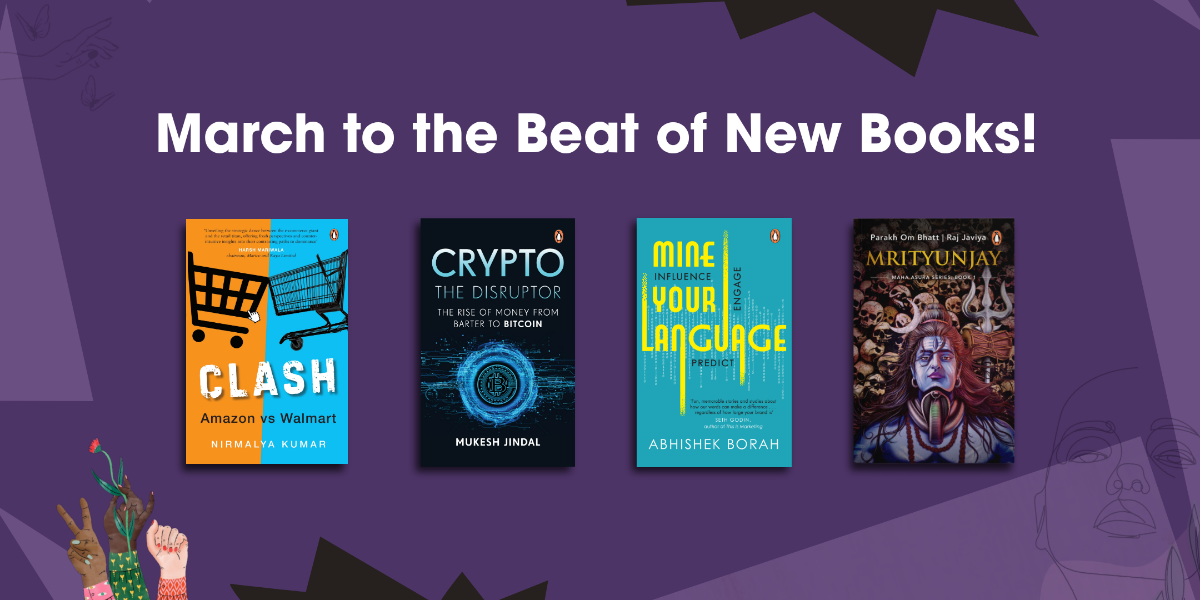March is here, bringing with it a burst of new books that reflect the changing season. From stories of overcoming challenges to thrilling adventures and heartfelt romances, there’s something for everyone as we embrace the start of spring. Join us in exploring these fresh reads and diving into the spirit of renewal this month!
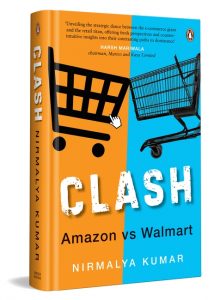
Amazon and Walmart, with more than half a trillion in revenues annually, are the two largest companies in the world. They have not only redefined the retail industry—Walmart in the 1980s/1990s and Amazon since 2000—but have also been the benchmark for business best practices (e.g., the use of IT, supply chain, data analytics, customer orientation). This year, it is anticipated that Amazon will dethrone Walmart as the world’s largest company, a position that Walmart has occupied for more than two decades.
By examining these two companies and their business models in depth, Professor Nirmalya Kumar elucidates on the more general phenomenon of incumbents competing with disruptors (e.g., Volkswagen vs Tesla, Marriott vs Airbnb) as well as the move to omnichannel retail where physical stores must coexist with online retailers.
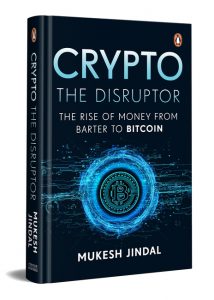
Crypto the Disruptor answers these and other such penetrating questions as it traces the history of money and the global economy. Providing a deep historical perspective, the author, through stories, captures the journey of the world’s financial system from the stone-age to the present. It analyses the movement of the world economic system from a centralized entity to a decentralized one and emphasizes the role of technology in the transformation of the global financial system. More importantly, this book explores the emergence of new forms of money such as cryptocurrencies and their relevance in a new world driven by digital technology. The final chapter educates readers about crypto investing in India and how investors should approach this new asset class, which is volatile yet offers great potential to create stupendous wealth.
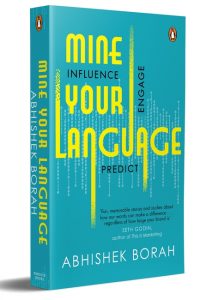
In Mine Your Language, Abhishek Borah meticulously and marvellously showcases the influence of language on business. Through examples ranging from Toyota to Tesla and Metallica to Mahatma Gandhi, you will read about how to improvise on social media, how changing the use of simple pronouns like ‘we’ and ‘you’ can affect a firm’s bottom line, how to spot a fake review online and much more.
So whether you are just inquisitive about the role of language in affecting consumer and company behaviour or a student wondering about the utility of language analysis in understanding them, Mine Your Language will teach you to use language to influence, engage and predict!
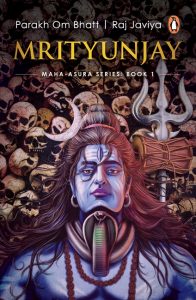
PRESENT DAY, BHARAT
Renowned archaeologist Sudhir Arya dies mysteriously the night before Diwali. His grandson, Vivaan, comes to his hometown to perform the last rites. Here, he gets a phone call that sets him off on a puzzling journey as he discovers thousand-year-old secrets and shocking facts about his identity.
1026 CE, PRABHAS KSHETRA
Sultan Mahmud Ghaznavi has attacked the first jyotirlinga of Lord Mahadev: Somnath. Did he seek the temple’s treasures? Or was he looking for a Puranic heirloom of Sanatan Dharma, the mystery of which has been buried under layers of time?
470 CE, ARAB LAND
Yogi Matsyendranath awakens the kundalini energy of his army through the ritual of Aatma Jaagran as it takes on terrifying, evil entities tasked with protecting the greatest mystery of the Kaliyuga.
SATYUGA, ARYAVARTA
Through yagnas, bloody sacrifices and mantras prohibited in the Vedas, Devi Anishtatri, the goddess of malevolence, is invoked. She appears in her most ferocious form and grants a boon so potent it could change the fate of the universe.
What is the link between Aryavarta, Arab Land and Prabhas Kshetra?
What is the vicious boon that threatens to change the fate of the cosmos?
The ultimate battle of Kaliyuga is about to begin . . .

Amal Allana’s compelling biography of her father is the first carefully researched, full-length account of the life, work and times of Ebrahim Alkazi, one of the giants of twentieth-century theatre and a key promoter of the visual arts movement in India. Evoking the excitement of Alkazi’s student years in England, the controversies that surrounded his provocative ideas to transform the theatre movement in Bombay and later in Delhi, as the director of the National School of Drama (NSD), this book charts Alkazi’s meteoric rise to the top, with his modernist staging of plays and his aim of putting Hindi theatre on the map.
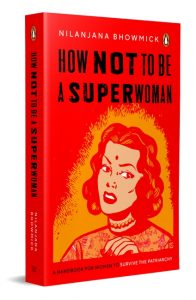
In How Not to Be a Superwoman, Nilanjana Bhowmick explores the immense pressure women face to excel in every role—as mothers, career women, partners and friends—and the toll this pursuit takes on their mental health and happiness. Her compelling work unveils the raw, real stories of diverse women who have broken free from the relentless cycle of perfectionism, and offers insightful, practical advice on achieving balance and joy that comes from embracing one’s true self. Through a feminist lens, she confronts and rejects society’s unrealistic expectations while advocating for a life of fulfilment, self-compassion and genuine empowerment. This is a must-read for women seeking to liberate themselves from the exhausting superwoman ideal and embrace a more self-loving, balanced way of living.
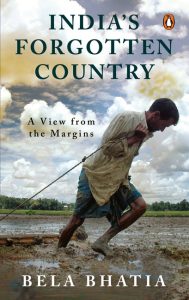
Over the course of more than three decades, Bela Bhatia’s work and concerns have brought her face-to-face with the harsh nature of people’s lives in India’s ‘forgotten country’—the hamlets, villages and slums—and the oppressive forces that rule and ruin the lives of Dalits, Adivasis, bonded labourers, women and other downtrodden groups. She has also witnessed how their everyday lives are pockmarked with violence and the brutality—often organized—they face when they resist.
India’s Forgotten Country captures Bela’s early years as an activist in rural Gujarat, her research on the Naxalite movement, her investigations of violations of democratic rights in different regions, and her recent years dealing with the ongoing conflict between the state and Maoists in Bastar. The essays build on first-hand investigations conducted in states ranging from Bihar and Telangana to Rajasthan and Nagaland, besides Kashmir. People such as Deepa Musahar, Kaliben, Muchaki Sukadi, Zarifa Begum, Tareptsuba and others have ample space in this book to speak for themselves.
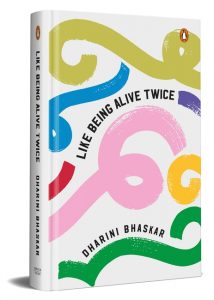
In an unnamed nation that’s about to rupture, Priyamvada (Poppy), a Hindu and Tariq, a Muslim are in love. In a few hours, Tariq intends to propose; Poppy intends to say yes. Both assume that they’ll fend off political blowback. For, surely, their privilege will protect them.
But will it? Will Poppy and Tariq sustain a love so wholesome, so cossetted, that it remains impervious to a dystopian state? Or will the two be rent apart by chance and circumstance? What will their lives look like as they plunge into a brave new future, together or apart?
Written in alternating chapters, Like Being Alive Twice trails fact and possibility—the tale as-it-was and the tale as-it-could-have-been-if-only—arranging and rearranging, tweaking and nudging; hoping to find a lasting peace in one or the other story; hoping, above all else, that such peace will prevail over murderous times.
Politically urgent, stylistically intrepid, and relentless in its commitment to scrutinizing love, loss and the language of privilege, Like Being Alive Twice tells of the frantic pursuit of life piled upon life, even as a bloodied world closes in.
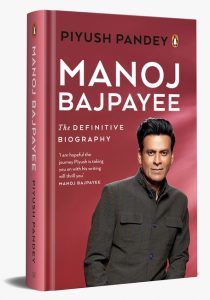
Manoj Bajpayee is a rarity; he’s one of a small cohort of theatre actors who have gone on from humble beginnings to achieve big heights in Hindi cinema. Bajpayee, famous for iconic movies like Satya and the beloved TV show Family Man, is known not only for his skills but also as a master of his craft. His fans adore him for his selection of always interesting projects that compel them to see a side of the world unfamiliar to them.
This biography is the story of Manoj Bajpayee’s commitment and devout passion for acting. It reveals many hitherto unknown aspects of his life to his readers—how his father also had a flair for acting and auditioned at the Pune Film Institute; how his ancestors came to Champaran, Bihar, from Raebareli in Uttar Pradesh; and how he spent his early childhood in the village where Mahatma Gandhi had visited during the Champaran Satyagraha.
Written by Piyush Pandey, who has worked in close coordination with Manoj Bajpayee for more than a decade, this book gives a rare insight into the life of one of India’s best contemporary actors.
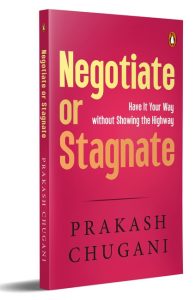
This book, written by an internationally renowned negotiation expert, is about the art of negotiation. It deals with the use of negotiation not only in business but also in our day-to-day life: how to negotiate a better salary; how to negotiate a promotion; how to negotiate a job; how to negotiate with your parnets, colleagues and friends, among other.
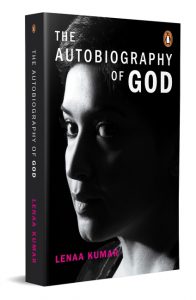
As this journey of self-discovery spanning eighteen years unfolds, Lenaa keeps a promise she made to herself during her darkest hours: ‘If I can stay off psychiatric medication for two years, I will write a book for fellow sufferers of anxiety, depression and the rigid psychiatric system.’ Now, five years later, the clarity has distilled down to five questions, one answer and a system of instant self-realization.
What am I? Who am I? Where am I? When am I? Why am I?
Can you answer these questions to your own satisfaction? If the answer is not a definite ‘Yes’, dive right into The Autobiography of God.
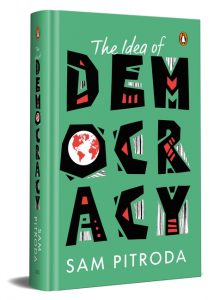
While electoral democracy continues to be the most prevalent form of government, a series of indicators measuring political and civic freedom reveal that the institution of democracy is in deep distress. With the liberal foundations of democracy shakier than ever before, confidence in institutions has plummeted. The Idea of Democracy looks at this paradox of so-called democratic success coupled with its liberal decline. It provides a detailed analysis of the essence of democracy, its workings, the kind of values it needs to encapsulate, forces and safeguards which work in liberal democracy’s favour and how they can be preserved.
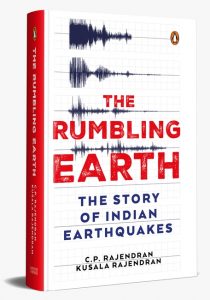
The renowned seismologists C.P. Rajendran and Kusala Rajendran offer a riveting story of the Indian earthquakes, their science, history and impact. Like all other natural phenomena, earthquakes are part of life-sustaining forces—the creators of the mountains, valleys and springs or even deserts on Earth—a theatre where the show never ends.
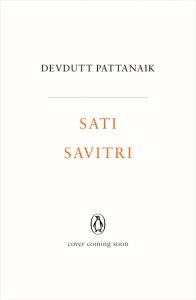
Manu said that a woman’s dharma is to be mother, daughter, sister and wife in service of men, regardless of the caste. In modern times we call this patriarchy. In the Veda, the need to control and favour hierarchy, is an expression of an anxious mind.
Hindu, Buddhist and Jain lore is full of tales where women do not let men define their dharma. In modern times we call this feminism. In the Veda, the acceptance of a woman’s choice is an expression of a wise and secure mind.
While in Western myth, patriarchy is traditional and feminism is progressive, in Indian myth both patriarchy and feminism have always co-existed, in eternal tension, through endless cycles of rebirth. Liberation thus is not a foreign idea. It has always been here.
You have heard tales of patriarchy. This book tells you the other tales—the ones they don’t tell you.







